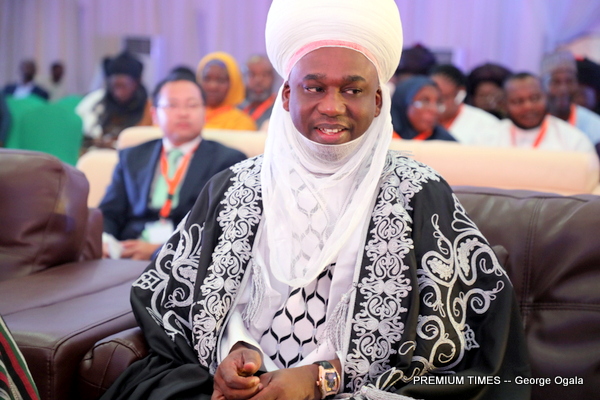The traditional ruler said this will ensure that healthcare meets specific quality and local needs requirements and that everyone has an equal chance at getting it irrespective of the social, economic or political status.
The two-day health dialogue, now in its second edition, arose from the need for home-grown solutions, innovations and political commitments to bridge funding gaps in achieving UHC in Nigeria.
It was organized by PREMIUM TIMES, Premium Times Centre for Investigative Journalism (PTCIJ), and their partners.
Nigeria has committed to achieving UHC by 2030. UHC entails providing effective access, including financial risk protection, to at least essential healthcare for even the poorest and the most vulnerable population and is key to achieving the Sustainable Development Goals (SDG).
According to Mr Abubakar, traditional institutions are going to play a dual advocacy role, “one on the demand side and the other on the supply side.”
“On the demand side, traditional institutions will leverage on its local network and moral authority to mobilize communities and increase demand for health services,”
“On the supply side, the traditional institutions will work with government and development partners to build new facilities and upgrade existing ones, provide an adequate and skilled workforce to improve quality access to health services at a reasonable and affordable cost.”
Mr Abubakar said creating emphasis on preventive care rather than curative healthcare requires extensive investment in not only healthcare but in education, to enable people to make informed decisions about their healthcare options.
“The multiplier effect of addressing health and education in any society is enormous. An educated and healthy society will have an effective workforce and vibrant economy,” he said.
“It is, therefore, a collective effort by all stakeholders to ensure that adequate and comprehensive attention is given to healthcare,” he said
“Equally important is the fact that morbidity has no defined boundary, therefore the need for extensive collaboration and universal coverage, making the role of traditional institutions even more imperative.”
The traditional ruler said the goal of achieving universal health coverage in 2030 is attainable but will require hard-work, financial commitment, and determination.
He challenged the Nigerian government through the National Health Insurance Scheme and other schemes at the state level to improve the sector.
“Because, as we move to ensure improvement in demand and supply of health services, they should work to create a responsive regulatory environment, pursue equity of access to quality services with financial protection and guarantees, and engage stakeholders at all levels to ensure that no one is left behind,” he said.
Also speaking at the event, the Director-General of the Nigerian Governors Forum, Asishana Okauru, said the forum is stepping up its advocacy towards UHC by deploying a ‘dashboard’ that will improve access of governors to data.
“This for decision-making, prioritization, and accountability. Our strategy is anchored on collaborative action and peer pressure,” he said.
Mr Okauru said health updates are a priority to Nigerian governors at their monthly meetings.
He said outputs of the meetings have influenced the health insurance programs in some Nigerian states and more structured implementation of the Primary Healthcare Under One Roof Policy.
“UHC will continue to remain on top of the agenda of the NGF. We promise to take on board by using our channels to communicate to our principal findings and resolutions of the conversation here focused on the ability to pay for healthcare and access to a standard healthcare facility,” he said.
Source: Premiumtimes

 Traditional institutions have a role to play for Nigeria to achieve universal health coverage in three areas of access, quality, and equity. The Emir of Gombe, Shehu Abubakar, said this at the annual National Health Dialogue that ended in Abuja on Tuesday.
Traditional institutions have a role to play for Nigeria to achieve universal health coverage in three areas of access, quality, and equity. The Emir of Gombe, Shehu Abubakar, said this at the annual National Health Dialogue that ended in Abuja on Tuesday.




